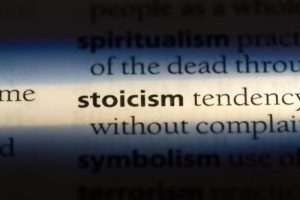Tribunal Finds Stoicism is a Philosophical Belief

An employment tribunal has found that Stoicism is capable of protection under discrimination law. The employee’s belief was an integral part of his life and was found to meet the requirements to be protected as a philosophical belief under the Equality Act.
It’s important for employers to be aware of the case to ensure all employees are treated appropriately.
What is the Case About? 
In Jackson v Lidl Great Britain the employee brought a number of claims to an employment tribunal, including direct and indirect discrimination on the grounds of religion or belief.
The employee has a strong interest in philosophy and a thorough knowledge of the particular philosophical belief system known as Stoicism. He believes that there ‘is an objective moral reality to which we are subject and that there are several ethical “values” to which he must adhere as a consequence of this belief. He identifies these values as wisdom, courage, moderation and justice’. At tribunal, the employee described himself as ‘not being a “consequentialist”, by which he meant that the consequences of what he says or does would not prevent him from saying or doing that thing’. He also said that it was inconsistent with Stoicism to display emotions. He was striving for a state of equanimity.
The judge had to determine whether the employee’s belief met the requirements to be a protected philosophical belief under the Equality Act. ‘Philosophical belief’ is one of the nine grounds on which employees have protection from discrimination. If the employee’s belief in Stoicism was not a protected philosophical belief, then his discrimination claims would not get off the ground.
For a belief to be protected as a philosophical belief under the Equality Act it must meet several tests including:
- Being genuinely held
- Being a belief as to a weighty and substantial aspect of human life and behaviour
- Attain a certain level of cogency, seriousness, cohesion and importance
- Be worthy of respect in a democratic society, not be incompatible with human dignity and not conflict with the fundamental rights of others
- Have a similar status or cogency to a religious belief
The tribunal found that Stoicism met the requirements for a philosophical belief and that the employee adhered to that belief. Amongst other things the judge found that:
- The employee has had a strong interest in and adherence to this philosophical belief system for a number of years and that it transcends merely holding an opinion.
- The belief plainly concerns a weighty and substantial aspect of human life and behaviour and that the employee applies his belief consistently and it is an important part of his life. The judge found it relevant that the employee is striving to achieve a state of equanimity, because that suggests a guiding purpose, which gives cohesion to his beliefs.
- The aspect of the test for philosophical belief which was most concerning to the judge in this case was whether the belief is worthy of respect in a democratic society, not incompatible with human dignity and not in conflict with the fundamental rights of others. The judge considered whether a conscious disregard of the consequence of saying or doing something where that might – or probably will – cause offence was inconsistent with the values of a democratic society. The judge concluded that there was no fundamental right not to be offended and gave as an example harassment under the Equality Act, saying that this ‘gives a person who has been caused offence by unwanted conduct a cause of action, subject to the limitations in that section. It does not, however, create a right not to be offended; rather, it creates a remedy if that offence occurs’. The judge held that whilst clearly there will be beliefs that, although genuinely held, would not be worthy of respect in a democratic society, the employee’s belief in Stoicism was not one of these.
The judge concluded that the employee’s belief in Stoicism is capable of protection under discrimination law as a philosophical belief.
However, despite this, the employee’s complaint of direct discrimination because of religion or belief ultimately failed as based on the facts of the case, it was struck out by the judge as having no reasonable prospect of success. The employee was ordered to pay a deposit if he wished to pursue his indirect discrimination claim on the grounds of religion or belief as the judge also felt that this would have little reasonable prospect of success.
Kingfisher’s Advice
Whether an employee’s particular beliefs will qualify for protection as a philosophical belief will depend on the facts of the case. However, it’s important to ensure that all employees are treated with dignity and respect in the workplace.
If you have any employment law matter with which you would like assistance, please do not hesitate to contact Kingfisher Professional Services Ltd as we are happy to help.
